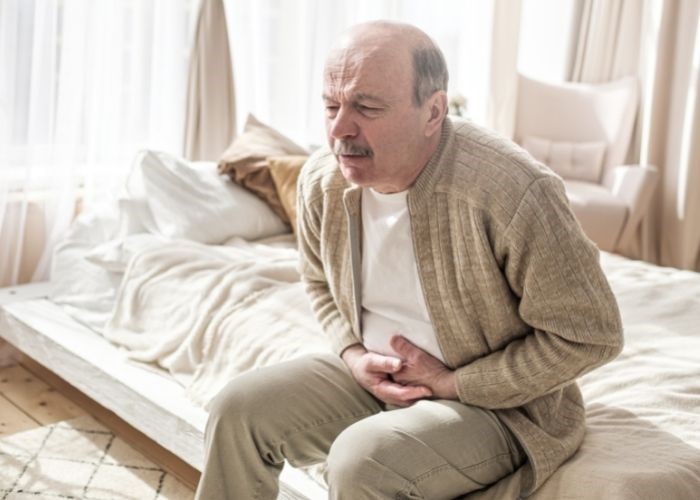Learn what can cause these stones and what people can do to avoid them.
Like kidney stones, bladder stones can form from urine and cause excruciating pain.
As our parents age, tasks that were once easy become a bit more challenging, and once-unimaginable complications begin to reveal themselves. Difficulty with urination, whether going too much or too little, is a hallmark of aging. But bladder stones—uric crystals in the bladder resulting from concentrated residual urine—are less familiar. Passing bladder stones can prove as painful as their more well-known counterpart, kidney stones. Keep an eye out for the most frequent causes of bladder stones so you can prevent your parents from suffering from them.
Enlarged Prostate
It’s almost a joke at this point that older men have to deal with enlarged prostates. It’s no joke to sufferers, though, who struggle to fully empty their bladders due to the pressure the enlarged prostate places on the urethra. The residual urine stays behind and concentrates, leading to the formation of stones. While many cases of prostatic hyperplasia are non-malignant growths, the side effects can still lead to serious problems like this.
Indwelling Catheter
Seniors commonly undergo surgery for urinary complications. To address urinary incontinence or blockages, doctors will install an indwelling urinary catheter as a long-term solution. But this solution presents some common complications. Residue on catheter tubing can lead to the development of crystals, which can move up the tubing and into the bladder, where they form full-fledged stones.
Nerve Damage
Even functions we take for granted require elaborate communication between the brain and the rest of the body. Such is the case for urination. Damage to the nerves between the bladder and the brain can lead to complications. When the bladder doesn’t receive complete signals to empty itself, urine stays behind and causes stones to form.
Poor Diet
Our aging parents may decide that they’ve earned the right to eat what they want. If this no-holds-barred diet is high in sodium, sugar, and fat and low in vitamin A, it can lead to serious health complications. These poor dietary decisions can lead to bladder stones in their own right, but more frequently, they increase the risk of kidney stones, which may find themselves small enough to pass to the bladder and continue to accumulate there. Poor diet is a leading cause of kidney stone formation and among the most frequent causes of bladder stones, too. Don’t deny your parents some treats, but make it clear that healthy food is still on the menu.
Disclaimer: The material in this blog is for educational purposes only. It is not intended to replace, nor does it replace, consulting with a physician, lawyer, accountant, financial planner or other qualified professional.

